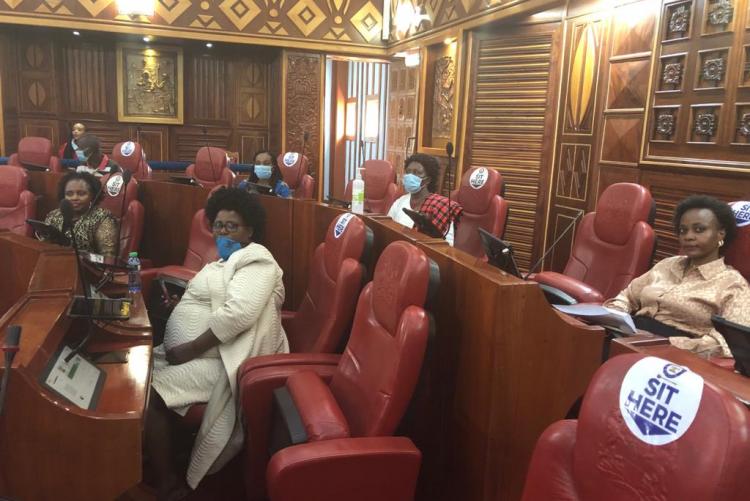The African Women Studies Centre (AWSC) presented a public participation and memorandum submission for The Constitution of Kenya (Amendment) Bill, 2020 as a matter under consideration before the Joint Committee of the National Assembly and the Senate. AWSC was represented by Dr. Agnes Meroka, Ms. Mary Wambui, Ms. Caroline Nyakinyua, and Mr. Musyoki Peter.
Citizenship, Elections Legislation, the Independent Electoral and Boundaries Commission, Legislature, Role of Senate, Membership of the National Assembly, Membership of the Senate, the National Executive, Functions of the President, Membership of the County Assembly, Election of County Governor and Deputy County Governor, County Allocation, Ward Development Fund, and The Youth Commission were among the clauses on which AWSC expressed its views.
The AWSC said in its opening remarks that any statutory provision contained in the Bill could not be used to reverse strides gained in women’s rights. Although the move to amend Chapter Three—Citizenship of the Constitution 2010 found favour with AWSC, its provisions on a citizen’s duty to promote patriotism were criticized for been patriarchal thus overlooking women’s contributions to national growth, including care work. As a result, it was suggested that a provision be added to Article 18(a) stating that the state would take all fair and realistic steps to ensure that each citizen is capable of fulfilling such responsibilities as Women’s Economic Empowerment. In addition, AWSC argued that since many women work in the informal sector, they will be unable to comply with the requirement that all people disclose their sources of income.
Concerning the question of representation raised in Clause 13 of the Bill, which seeks to amend Article 97 of the Constitution, Membership of the National Assembly, AWSC applauded the provision for the election of PWDs and youth, as well as the establishment of top-up seats to ensure the Two-Thirds Gender Rule is implemented. Hon. Otiende Amollo responded by emphasizing that anyone can run for office and that the electorate has the right to vote for whomever they choose. As a result, he tasked AWSC to clarify how the public could be told whether to vote for a woman or a man in any given electoral unit.
Hon. Peter Kaluma, on the other hand, noted that Kenya had become preoccupied with whether an individual was born female or male than with leadership and societal efficiency. To put this in context, he argued that the gender principle would require 151 people of the opposite gender to be nominated if the electorate and political parties choose one gender to fill the 290 constituencies and 12 nomination slots. As a result, rather than classifying candidates for political office as men or women, the electorate ought to focus on their leadership abilities. This would help to dispel the idea that the more nominations or “top-ups” are encouraged, the greater the chance of one gender being disadvantaged. In recognition of the fact that the playing field for women and men in politics is not equal, notwithstanding prior submissions, the AWSC recommended that the 15-year cap to enforce the affirmative action principle be removed, appealing that there was no straightforward road map to implement affirmative action, drawing on a familiar situation in the ten years since the 2010 Constitution was promulgated.
- Log in to post comments

